Dealing with language interference in texts
Joy Burrough-Boenisch, the Netherlands
After a brief recap on features of language interference, we’ll explore different forms of language interference in a variety of text extracts from a range of genres and discover and discuss ways of dealing with them. All the texts considered will be in English, but the ‘interfering’ language won’t always be Dutch: we’ll also look at English influenced by other languages and their writing conventions. So, expect to have to venture beyond your gezellig linguistic comfort zone but also to find that identifying and dealing with the often subtle linguistic influences and writing conventions from other languages that crop up in written English is intellectually satisfying and fun.
This 2½-hour workshop is limited to 16 participants. All will be sent a short homework assignment beforehand, which we will discuss during the workshop.
Register here.
About the presenter
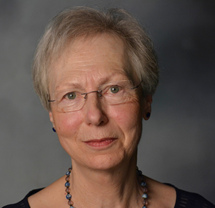
Joy Burrough-Boenisch (MITI) is a founder member and past chair of SENSE with a long career as a freelance authors’ editor and translator for Dutch academics and scientists. She has taught scientific English to graduate students and has presented webinars. She has given workshops for language professionals on editing non-native English in various European countries and for the European Commission. Her conference presentations include two in 2018 as an invited speaker at ATA’s New Orleans conference. Originally a geographer, she learnt to edit in Borneo and Australia before moving to the Netherlands, where her interest in second language interference and non-native English resulted in a PhD thesis on Dutch scientific English. As well as being the author of Righting English that’s gone Dutch (3rd ed 2013), she has various scholarly and professional publications on editing and non-native English to her name.
REFOCUS • REBOUND • REPEAT
An online panel discussion about risk-taking and agility in turbulent times
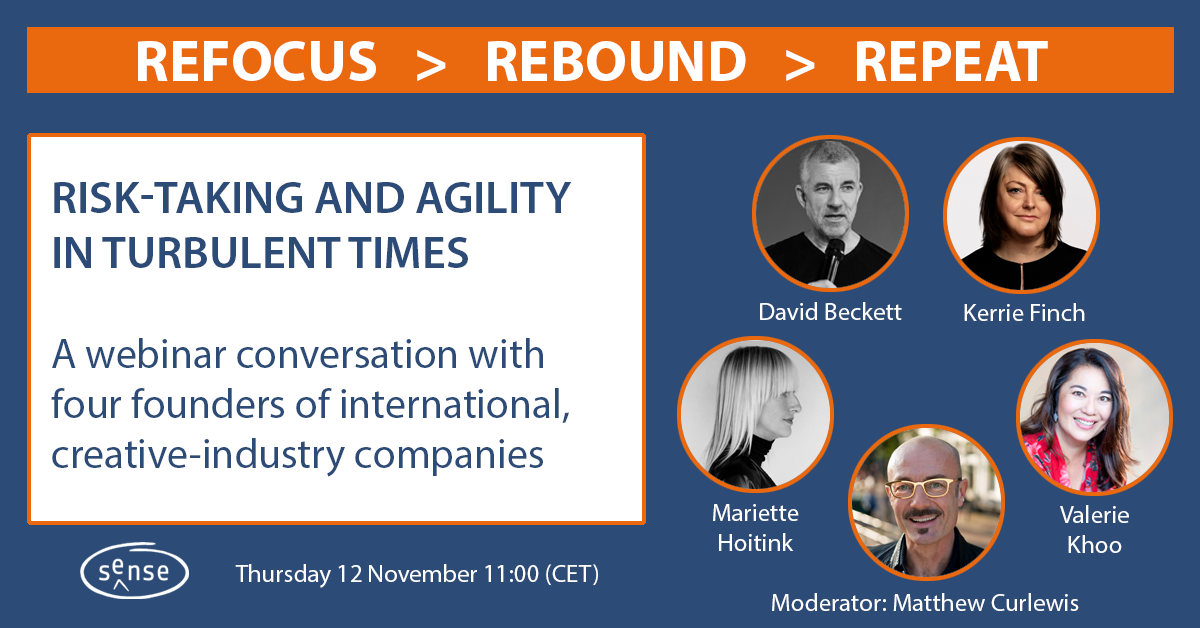
A 75-minute webinar on Thursday 12 November, commencing at 11:00 (CET) / 10:00 (GMT) / 21:00 (AEDT)
In recent years our speakers – four founders of international, creative-industry companies – have interacted, collectively, with tens of thousands of people. Between all the students, recruitment candidates, pitch trainees, and business leaders they’ve had contact with, what qualities most consistently define resilience? And from the many behavioural traits and tendencies they’ve observed, which ones best keep us in flow? These days uncertainty stretches beyond the horizon – one day a pandemic, climate change the next, followed by political and social unrest – what strategies can help us navigate through this unfamiliar territory? Drawing from our speakers’ diverse areas of expertise in writing and creativity, PR, fashion business, and pitch training, what are some tips and techniques on how to pivot and innovate? And what small steps taken today, can help us future-proof ourselves as freelancers, employees, and business owners, ready with positive energy for tomorrow?
In hopes that this conversation might offer some real support for people experiencing financial difficulties at this time, SENSE is providing this webinar free of charge.
Register here.
ABOUT THE SPEAKERS

David Beckett is an international pitch coach who has trained over 1100 Startups to win over €295 million in investments. He's also trained more than 16,000 professionals in corporate settings in 29 countries, as well as more than 30 TEDx speakers. David is the creator of The Pitch Canvas© and the author of the book Pitch To Win. In a previous life, David spent 16 years at Canon as a country director, before leaving in 2009. He then spent a year travelling and another year writing a book about Amsterdam, before running out of money. After taking on five jobs – and getting fired from two of those – he decided to focus on his passions of presentation and coaching.

Kerrie Finch Prior to founding futurefactor (formerly FinchFactor) in 2009, Kerrie Finch was PR Director at Wieden+Kennedy. There she wrangled brands such as Nike and Heineken, Coca-Cola and Electronic Arts. Kerrie has been voted into Adformatie magazine’s top ten industry influencers for the past three years. As Founding Partner & President of futurefactor, Kerrie continues to drive change in the industry, while advancing her work as the Netherlands representative for the Cannes Lions International Festival of Creativity, board member of the ADCN, advisory board member of IncludeNow, and the founder of SheSays Amsterdam.

Mariette Hoitink – a matchmaker at heart – is the founder of HTNK; Amsterdam’s premiere multi-disciplinary, full-service recruitment and consultancy agency. HTNK connects both creative and commercial professionals with clients, around the world, working throughout the entire supply chain for all disciplines within fashion, lifestyle and beauty; on recruitment, consultancy, business, and talent development. Mariette’s insider knowledge enables her to create complex value-connections for a variety of clients, and she’s an expert when it comes to sustainability and corporate social responsibility. Mariette is also an instigator of projects that contribute to the development of the creative industry as a whole, which include Red Light Fashion, Dutch Fashion Here & Now, The House of Denim Foundation, and Denim City, the denim innovation campus in Amsterdam with the first and only Jean School in the world.

Valerie Khoo is a writer, mentor, artist and CEO of the Australian Writers' Centre, the country's leading centre for writing courses. She is a non-fiction author of multiple books, and former journalist who wrote for one of Australia's most reputable broadsheets for over 15 years. Valerie combines her work in the writing and publishing industry with her work as a visual artist. Her artwork has featured in multiple exhibitions and is licensed through companies all over the world. Valerie was also the City of Sydney’s Curator of the Sydney Lunar Festival for 2019 and 2020, an event that attracts more than 1.5 million people.
ABOUT THE MODERATOR
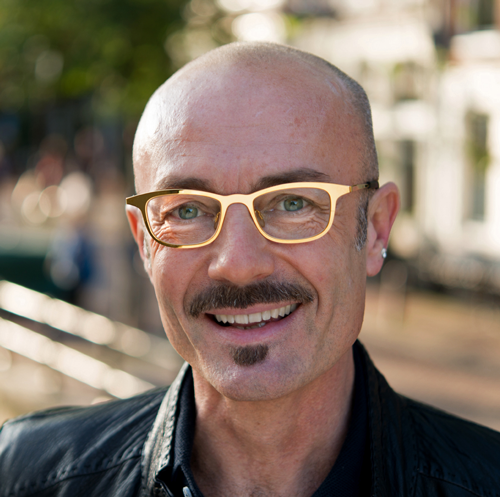
Matthew Curlewis is a freelance Senior Creative in the advertising industry, and the founder of Amsterdam Writers. His copywriting client list includes Emirates, PUMA, Gucci, Heineken, Macy's and Comedy Central, and his articles have appeared in The Guardian, Time Out, Amsterdam Weekly, CODE, Fantastic Man and Blume Illustrated. Matthew began his career as a performance artist and spent 20 years performing on numerous stages across Australia, North America and Europe, before shifting to hosting and presenting. For SENSE, Matthew is the Co-ordinator of Continuing Professional Development.
Best practice for revising translations
Brian Mossop, Canada
This workshop will be held in two parts.
The workshop will look at the reviser's tasks from the point of view of various constraints. The format will comprise brief theoretical presentations followed by text-based or scenario exercises focusing on the most effective way to carry out a given revising or editing task.
Here are the topics we'll look at over the course of the two days:
- What is revision: how should we see it? What is the best way to define quality for revision purposes? How should we integrate self-revision into the translation process? How important is it to have a translation revised by a second translator? Reviser/revisee relations and the need to justify changes. To change or not to change: principles for making corrections. Should we revise on paper or on screen? How much research should revisers do? How much attention should we devote to consistency? Conflicts of loyalty (to the various parties involved in a translation job).
- Degrees of revision: review entire text or just parts? review some or all aspects of a translation? compare every sentence of the translation to the source or just glance at the source when necessary?. Computer tools for revision. Revising well but also quickly. Abilities required of revisers.
If there is interest, we'll also look at revision within large translation departments and translation agencies: consistency among revisers; auditing the contribution of revision to a translation service.
Register here.
About the presenter
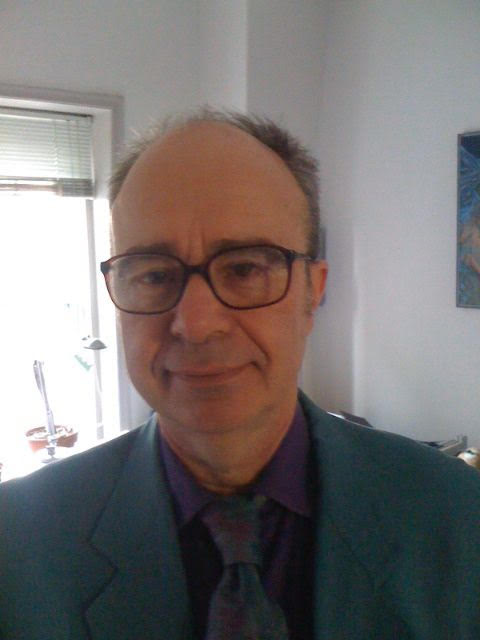
Brian Mossop was a French-to-English translator, reviser and trainer at the Canadian Government’s Translation Bureau from 1974 to 2014. He continues to lead workshops and webinars on revision in Canada and abroad. Since 1980, he has also been a part-time instructor at the York University School of Translation in Toronto, teaching revision, scientific translation, translation theory and translation into the second language. For more, visit www.yorku.ca/brmossop.
Jubilee 2020 Online Workshop Programme
Please note that programme elements may be subject to change.
| Date | Topic | Fee | Register link | ||||||||||||||
| Week 38 17 September 2020 9:30–12:30 |
Chris Baylis The thinking behind the words |
1 unit | Click here to register | ||||||||||||||
| Week 39–44 22 September to 27 October 2020 19:00–21:30 |
Matthew Curlewis Writers' Stretch & Tone A six-week workshop cycle |
6 units | Click here to register | ||||||||||||||
| Week 45 5 November 2020 13:30–17:30 |
John Linnegar Applying plain language principles to creating accessible, reader-friendly texts |
1 unit | Click here to register | ||||||||||||||
| Week 46 12 November 2020 |
REFOCUS • REBOUND • REPEAT An online panel discussion about agility and risk-taking in pandemic times Hosted by Matthew Curlewis |
free | Click here to register | ||||||||||||||
| Week 47 18 November 2020 13:30–17:30 |
Joy Burrough-Boenisch Dealing with language interference in texts |
1 unit | Click here to register | ||||||||||||||
| Week 48 & Week 49 26 November & 3 December 2020 15:00–18:30 |
Brian Mossop |
2 units | Click here to register | ||||||||||||||
| Week 50 10 December 2020 13:30–17:00 |
Oliver Lawrence The sweet sound of writing finesse |
1 unit | Click here to register | ||||||||||||||
Workshop fees
| Fee per unit | |
| SENSE members | € 30.00 |
| Members of sister societies* | € 45.00 |
| Non-members | € 60.00 |
Members and non-members pay different fees to attend the online conference and workshops (membership costs only € 80 per year).
* MET, NEaT, APTRAD, EASE
SENSE is not registered for VAT and does not charge VAT.
Please note that programme elements may be subject to change.
Tip! On your smartphone, scroll left and right to see all the columns.
The thinking behind the words
Chris Baylis, the Netherlands
Copywriting is: The clear. The funny. The charming. The persuasive. The genuine. The moving. The logical. The intelligent. The provocative. The thoughtful.
A copywriter knows which approach to use, and when. A copywriter knows this because they have understood the strategy, they’ve had an idea, and then chosen the right words.
In this interactive workshop, we’ll explore how to approach strategy, how to have an idea and then how to approach the copy itself. We won’t be talking about grammar, structure or any of that. Copywriting is imagination and bravery. For the rest, there’s spellcheck.
Register here.
About the presenter
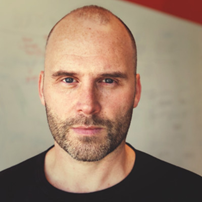
Chris Baylis - Creative Director and Copywriter An international, award-winning creative leader and storyteller, with 20 years experience in advertising, innovation and branding. I help brands find their purpose, voice and organizing narrative - connecting this to culture through content, advertising, experience design and marketing.
Chris has led network agencies, worked client-side as a copywriter and creative director, helped many of his own clients find their voice, define their brand and reach their audience, and he has mentored and helped many start-ups. Chris taught and lectured at Miami ad-school, Cannes Lions and Eurobest ad festivals. Some of his work is here.
The sweet sound of writing finesse
Oliver Lawrence, Italy
In this world of hurriedly written, poorly edited or machine-translated flam, there’s an aspect of wordsmithery that can help your work stand out.
Euphonics.
The ability, that is, to write not just clearly and incisively but melodiously, too. If we can craft texts that sound sublime, then we’ll be doing that bit more to seduce our readers, delight our clients and – why not? – spread a little verbal happiness.
That doesn’t mean overdoing it with the frills; rather, it’s about cultivating a sensibility to sound and rhythm, assonance and emphasis, a feel for when you need an extra beat in the bar, another adjective before that noun, or a volley of stressed syllables to ram a point home. It’s about exploiting the resonances alive in tinny t’s or luxuriant l’s or bumbling b’s. Not childish onomatopoeia or titillating tabloid alliteration but … euphony.
With a blend of presented and hands-on material for you to grapple with, this workshop aims to attune attendees to the nuances of rhythm, sounds and patterns of echoes. To turn piffle into – well, if not poetry then something easier on the ear.
Register here.
About the presenter
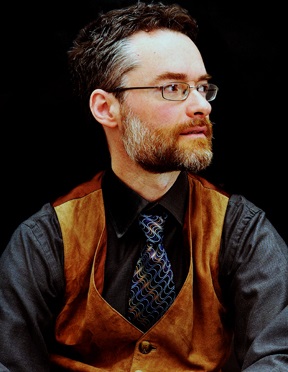
Oliver Lawrence turns Italian marketing texts and, occasionally, writing briefs into incisive English, specialising in tourism, leisure and luxury. Much of his editing and translation work involves damping down faintly cacophonous glitches that foul the flow of what should be smooth high-end copy. A Fellow of the CIOL, Chartered Linguist, ITI Assessor and strolling conference presenter, among other things, he teaches the CIOL web-based Clear Writing course – now in its 8th edition – and lurks online at www.incisiveenglish.pro and @oliverlawrence1. Interests include poetry, cake and gin, but not necessarily in that order.
Writers' Stretch & Tone
Matthew Curlewis, the Netherlands
A six-week workshop cycle for both advanced and beginner writers to stop thinking and start doing. Generate new work, revise old work, experiment with form and style and generally keep your writerly muscles fit - all in the company of other like-minded writers.
For this workshop, whether you have a story or a project already in process or not doesn’t matter. Writing suggestions during the sessions will always give you somewhere to start. Then it’s your choice whether you try out different voices and approaches in a new piece of writing or you continue to develop a work already in progress.
By the end of each session, you will have created new work. You will also have heard some fellow participants read their new work out loud - and sometimes you may have read out loud yourself. (Reading is always optional.) What will always remain is that thinking, by itself, doesn’t produce writing. Writing produces writing!
Time is also made available, when requested, to read and analyse participant manuscripts - no matter what their form. This might mean reviewing short stories and essays, at other times screenplay excerpts or works still finding their form. Feedback is given in two rounds:
- What's working? What's already good in this manuscript?
- Are there any obstacles or confusions? Any suggestions on how to improve this piece of writing?
At the culmination of six weeks, your writerly muscles will be stronger and more flexible, and you will feel fitter as a writer. This in turn will give you greater confidence for taking on further or more complex writing challenges.
Cycle of workshops: six weekly sessions
Tuesday evenings from 22 September to 27 October, 19:00 to 21:30
Spaces are limited to 10 participants maximum.
Register here.
About the presenter

Certified to lead workshops in the Amherst Writers and Artists method, Matthew founded Amsterdam Writers in 2008 and has been leading his workshop, 'Writers' Stretch & Tone', ever since.
As a Senior Copywriter, Matthew has worked on international campaigns for clients that include Emirates, PUMA, Gucci, Heineken, Philips, Sony Computer Entertainment, Accenture, Macy's and Comedy Central.
His writing has appeared in publications, including Time Out, Amsterdam Weekly, CODE, Fantastic Man and Blume.
Matthew was both screenwriter and lead producer of Brilliance, a Netherlands, Poland, UK co-production short film that screened internationally at numerous film festivals, and which is one of Eye International's 'Selected Dutch Shorts 2015'.
See also Amsterdam Wrters.
Applying plain language principles to creating accessible, reader-friendly texts
John Linnegar, Belgium
‘The message is important, not the fancy language wrapped around it.’ (George Orwell)
It’s astonishing how may writers feel they need to ‘dress up’ their writing to the extent that they lose their natural (aka plain) voice completely! Their reasons are no doubt many: from wanting to impress to needing to sound important or authoritative – and sometimes even because their boss or professor ‘writes like that, so it must be good’! But in this day and age we should rather be ‘dressing down’ writing to make it more accessible and flow better. Where writers themselves are incapable of doing so, the task usually falls to us wordsmiths to dress (not dumb!) writing down.
We need to make authors’ words clear and straightforward, using only as many words as are necessary. Plain Language helps us to do so by dispensing with the ‘fancy language wrapped around their words’: obscurity, inflated vocabulary and convoluted sentence constructions. Applying Plain Language principles systematically, our aim is to render the authors’ messages readily understood at first reading.
By the end of this workshop you will be able, with confidence, to:
- convert long, complex sentences into shorter compound or simple ones;
- replace, where possible, passive voice (O-V-S) constructions with active ones (S-V-O);
- remove embedded clauses from complex sentences;
- replace ‘difficult’ polysyllabic words and jargon with more everyday, accessible synonyms (e.g. ‘remuneration’ with ‘pay’ or ‘wage’);
- make impenetrable noun strings accessible by inserting prepositions and articles into them;
- supplant nounisms (nominalisations) with healthier vigorous verb equivalents (e.g. ‘invitation’ with ‘invite’);
- dispense with archaisms such as ‘aforesaid’, ‘herein’, ‘thereby’, ‘whereafter’;
- find ways to introduce useful visual elements (e.g. lists).
Fundamentally, we wordsmiths will be asking – and answering – the questions ‘Who is the audience and what are their needs?’ In so doing, we’ll be using the approach our writers should have adopted in the first place: a reader-centredness.
In this 3.5-hour workshop, you’ll have an opportunity to put these principles into practice.
Register here.
About the presenter
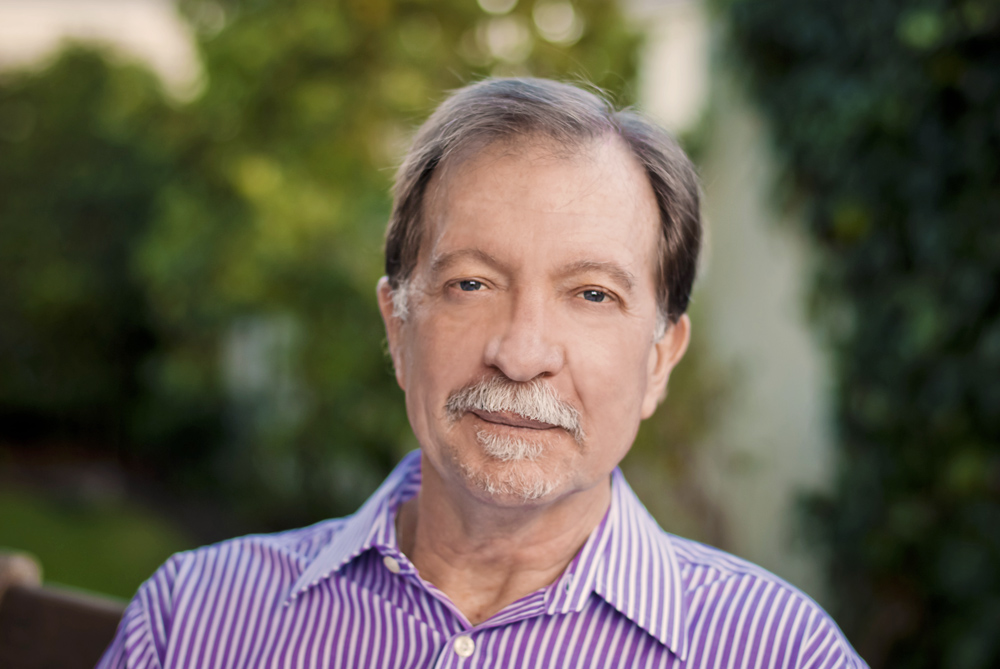
An author and a passionate copy-editor with some 40+ years’ of manuscript improvement behind him, John Linnegar is a former teacher of English at secondary school and undergraduate levels. His specialty as an editor is law. In 2009 he published a book on common errors committed by writers in English in South Africa (NB Publishers, reprinted 2013); in 2012 he co-authored Text Editing: A Handbook for Students and Practitioners (UA Press) and in 2019, together with Ken McGillivray, wrote and published grammar, punctuation and all that jazz … (MLA Publishers). He contributes regular articles on the usage and abusage of the English language to professional bodies.
In the table below you will find the links you need to request access to the SENSE 2020 Online Jubilee Conference recordings.
Click on the link for the session you wish to view, enter your Zoom credentials, and click register. The SENSE Zoom Master will approve your viewing registration request as soon as possible. Once your request has been approved, you will need the Access Password to view the recording.
Access will only be granted to those people who registered for the conference.
6 June 2020
SENSE Online Conference Day 3 was a whirlwind of sessions and a panel discussion on maintaining productivity as your family grows.
Joy Borrough-Boenisch: Language interference: Forewarned is forearmed
This session was an absolute must for those of us working as translators or as editors of texts written by non-native speakers of English. Using a wide array of examples, Joy showed us how the native tongue of an author interferes with their written English. Native speakers of English who have lived in another country for a long time may be similarly affected.
After discussing the different kinds of positive and negative interference (also called language transfer), Joy offered a range of fascinating examples and comparisons that showed us just how short Dutch sentences are on average and how much translations from Dutch to English are influenced by this.
Language professionals should educate themselves so they can recognize this interference when translating, editing texts written by non-native speakers of English or when they’re based in a non-English-speaking country themselves.
David Barick: Writing effective comparisons in scientific articles
Next up was David Barick, who treated us to a fascinating session on how to write good comparisons in academic articles. Through his work as a language editor, he often encounters clumsy comparisons that are difficult to grasp or simply ineffective.
David took us on a tour of different examples of ineffective comparisons, showed us that double comparisons can easily be fixed by using “than” and reminded us of grammatical parallelism: only items of a similar nature and category should be compared.
To round off his talk, David let us attempt to decode a few examples of badly phrased comparisons, which was great fun and very instructive.
Ashley Cowles et al.: Panel discussion: Maintaining productivity as your family grows
Becoming a parent can greatly change the way you run your business, and each stage of your child’s development comes with its own challenges. Today’s panellists touched upon a number of these challenges, and dealt with some of their own: due to personal circumstances, several of the originally scheduled panelists were unable to attend at the last minute!
Lloyd Bingham, Ashley Cowles and Cathy Scott shared their own experiences with the audience and answered any questions raised by attendees. The discussion was divided into four subjects: coping with work, balancing the mental load, raising children bilingually and navigating Dutch society as a parent.
Other issues that were raised involved how to deal with lockdown and how to make sure you maintained a healthy relationship with yourself and your significant other. All in all, a lot of interesting viewpoints were shared. The conclusion? There is no one-size-fits-all solution to parenting, but we’re all in this together. For more support from your peers, consider joining the Parents Who Are Freelance Translators group! (https://www.facebook.com/groups/285604754958708/)
John Linnegar: The plain truth: Applying Plain English principles to improving texts
The final session of Day 3 and of the SENSE 2020 Conference was an extensive introduction to plain-language principles: putting the audience’s needs first. That means avoiding unnecessary words: short sentences without jargon, technical terms or ambiguous phrasing. The idea is not to ‘dumb things down’ but to do away with fancy language, letting the reader understand the message at first reading.
Partly basing himself on the wisdom of George Orwell, John provided an extensive overview of the different principles of plain English and the problems of ‘unplain’ English. As a rule, if you can cut a word out, do so.
John reminded us to avoid sentence complexity; ideally, they should not exceed 20 words. Overly complex sentences can often be cut in two. For clarity’s sake, writers should avoid using noun strings or too many subordinate clauses. The same applies to writing in the passive voice and using negative statements.
To round things off, John advised us to develop a sense for ‘unplain’ English by asking:
- What is making this text unreadable?
- What is making it less accessible?
- And why would the writer write in this way?
Queries can go a long way in making authors understand the reader’s perspective.

